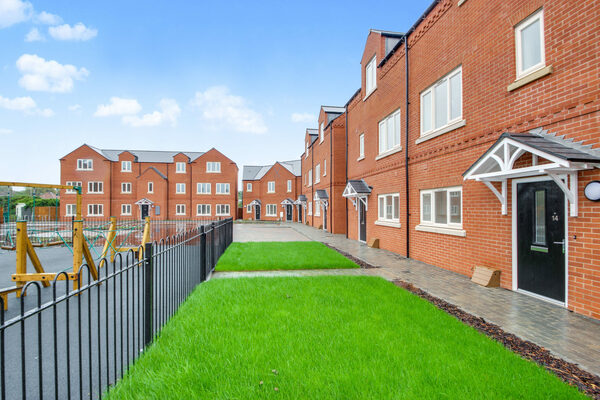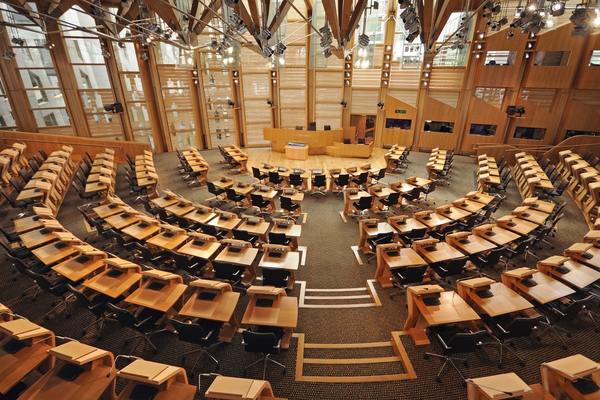You are viewing 1 of your 1 free articles
The spin has been good, but March’s Budget will let us know if ‘levelling up’ will be another let-down
Boris Johnson says he wants to “level up” society. March’s Budget will demonstrate whether he actually means it, writes Martin Hilditch
Much like weekends, political legacies are generally at their best when they lie ahead of you.
At the moment prime minister Boris Johnson is able to bask in a future legacy that involves “levelling up” opportunity across Britain and delivering a party that is for “literally everyone”. And this week the Scottish government’s Housing to 2040 consultation closes.
That sets out its ambition to create a “lasting legacy” that includes eradicating child poverty and homelessness, ending fuel poverty and tackling the effects of climate change.
Before we all bounce off down the yellow brick road, it’s worth paying attention to a couple of legacies that were also the future once. A new decade with a new government brings a chance to reflect on learning from the past and on the future direction of travel.
Remember, for example, David Cameron’s promise to fix “broken Britain”. This week, almost 10 years after he came to power, the Marmot Review into health inequality in England opened with th
e dramatic words “England is faltering”.
The report’s headline findings – that North-South health gaps have increased and life expectancy has stalled – gained numerous column inches this week.
No one who works in housing will be surprised by the picture the report paints of a housing system that is harmful to people’s health in a variety of ways, from a welfare system that pushes people into debt and arrears to rents that have increased at a greater rate than pay.
In Scotland, the government introduced legislation in 2012 that was designed to effectively end homelessness by entitling people homeless through no fault of their own to settled accommodation (rather than simply those in priority need).
Glasgow Council has been hitting the headlines in recent years for breaching this – on 3,365 occasions in 2018/19. Whether it is down to the council’s own allocation of resources, the need for more funding centrally or welfare reform, we are certainly still a distance from achieving the lofty ambitions of 2012.
We know what many of the answers are. Many of the Marmot Review’s conclusions about how to close the health gap fit neatly with the housing sector’s wish list ahead of chancellor Rishi Sunak’s Budget on 11 March. These include increasing the proportion of new housing being either affordable or in the social housing sector, redesigning Universal Credit and building new carbon neutral homes.
On the face of it, on many issues, the government’s aims and the sector’s asks seem to be aligned, too. Unfortunately, identifying your goals is the easy bit. Legacies look great in advance. The tricky bit, and where David Cameron and Theresa May failed comprehensively, is delivery. We know what needs to be done. See you on March 11 for the verdict on whether "levelling up" is just another let-down.
Martin Hilditch, editor, Inside Housing
What is the Housing to 2040 consultation?
Holyrood, where the Scottish government is based (picture: Getty)
The Scottish government says its Housing to 2040 consultation is “designed to support a conversation about how we can together plan for what we want our homes and communities to look and feel like in 2040”.
It sets out a series of principles and a draft vision for what it wants to achieve in the next 20 years. These principles are:
- Principle one: The housing system should supply high-quality affordable homes for living in, to shift the balance away from the use of homes as a means to store wealth.
- Principle two: Government policy (including taxes and subsidies, for example) should promote house price stability, to help underpin Scotland’s standard of living and productivity and promote a ‘Fairer Scotland’.
- Principle three: Everybody should be able to save for the future (as well as be secure in their home and make significant changes to it), whether they rent or own.
- Principle four: Housing provision should be informed by whole-life economic costs and benefits in the round and help to address inequalities in health, wealth and education.
- Principle five: Tenure-neutral space and quality standards for new homes (and existing homes where possible) should be set specifically to improve and protect quality of living and of place.
- Principle six: Government policy should promote a greater diversity of home builders and broader availability of land for development to reduce prices and improve building quality.
- Principle seven: All tenures should apply the same high quality and safety standards and levels of consumer protection.
- Principle eight: New homes for sale should be built to high standards, defects should be identified and remedied quickly, and all owners should be required to maintain the condition of their home.
- Principle nine: Decisions around the quality, location and utilisation of existing stock and new build should be ambitious in enhancing biodiversity, promoting Scotland’s energy security, and be consistent with the target for Scotland’s emissions to be net zero carbon by 2045.
- Principle 10: New housing, and the required community resources, should only be provided where they help to create safer, stronger, attractive, sustainable and integrated communities.
- Principle 11: Local communities should be empowered to respond to housing need in their area, as part of a coherent regional economic approach (creating and maintaining jobs) and supported by provision of the right infrastructure.
- Principle 12: Government intervention should help existing and new communities to be physically, digitally, culturally and economically connected within a coherent geographic region; this includes retaining and attracting vibrant communities in areas facing depopulation.
- Principle 13: Government should ensure that there are affordable housing options across Scotland for households at all income levels.
- Principle 14: Housing and the housing market should be highly flexible to enable people to meet their changing needs.
- Principle 15: Everyone has a right to an adequate home.
The consultation closes on 28 February.
Sign up for our daily newsletter
Already have an account? Click here to manage your newsletters
















